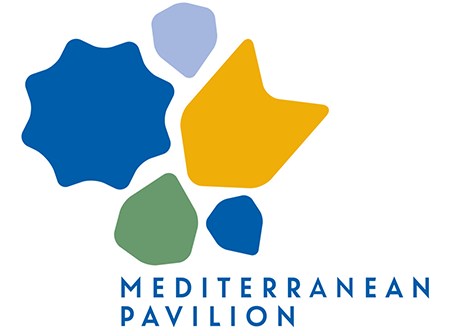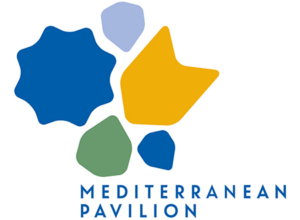Fields: Agroecology / Environmental Geography / Agricultural-Economics. Application deadline: 31/12/2022.
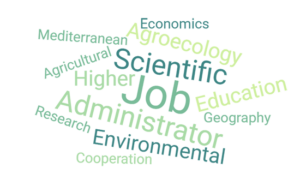
A position of scientific administrator in agroecology/environmental geography/Agricultural-Economics is opening at CIHEAM-IAMM. This recruitment is fully in line with the scientific policy that structures the training, research and cooperation activities of CIHEAM-IAMM.
Missions
The activities of the person recruited will be divided among the three missions of CIHEAM-IAMM:
Higher education (second year of a Master’s degree). They will be in charge of running the MIDAS Master’s degree which will focus on “Designing innovative agricultural systems in terms of Sustainable Food Production in the Mediterranean area”. In this context, the candidate will primarily teach on the subject of the “Assessment of the performance of Mediterranean agro-systems under climate and socio-economic changes”.
Research and cooperation. The candidate will have to actively contribute to the development of an international network on the job description topic, respond to international calls for projects based on applied research, research-action and development cooperation, and publish the research results in scientific journals and magazines. Moreover, the candidate will be integrated in several ongoing international projects, such as Horizon Europe (e.g. NATAE, GRANULAR, ALLIANCE) and PRIMA (e.g. AGREEMed).
The position is based in Montpellier and will involve frequent trips to Mediterranean countries.
Application
The application must be written in English and include the following elements:
– A CV comprising:
- scientific experience, including a list of publications and research activities
- teaching experience
- development cooperation experience
– A dissertation on scientific work or equivalent (maximum 8 pages).
– A cover letter concerning the missions defined in the job description (maximum 3 pages).
Qualifications required
- Qualifications: PhD in one of the following fields: agronomy, geography, or economics. In each case a specialization in agroecology and the ability to conduct quantitative analysis at large spatial scale is required.
- Sound knowledge of quantitative spatial analysis methods
- Teaching experience at Master’s degree level is preferable
- Ability to lead and produce research and publications
- Good spoken and written command of English is mandatory
- Experience in terms of international tender response is preferable
Selection process and remuneration
Applications will be examined by a committee of international experts. The shortlisted candidates will be called for an oral presentation of their application. The committee will communicate their selection to the director of CIHEAM-IAMM who will in turn submit his choice to the general secretary of CIHEAM for validation by the CIHEAM Board of Directors.
The candidate selected will have the status of CIHEAM-IAMM administrator with a 4-year renewable
Scientific administrator contract which will start with a 6-month probationary period.
The level of remuneration, comparable to that applied in French Higher Education, is set in accordance with the CIHEAM-IAMM pay scale, depending on the selected candidate’s qualifications and experience.
CIHEAM-IAMM is committed to a policy of non-discrimination and gender. Position open to people with disabilities.
Application deadline: 31/12/2022
The application should include a maximum of 3 electronic documents (doc, odt or pdf files) and be sent by email to the following address: emploi@iamm.fr
>> Job description
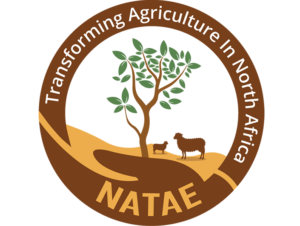 Context
Context

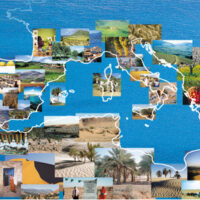 CIHEAM MontpellierOur vision is that of a Mediterranean basin characterised by a spirit of cooperation.
CIHEAM MontpellierOur vision is that of a Mediterranean basin characterised by a spirit of cooperation.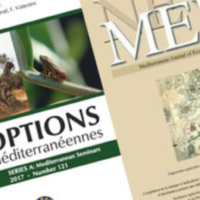 CIHEAM publicationsOur publications and communication tools aim to facilitate decision-making processes for political, economic and agricultural actors in the Mediterranean region
CIHEAM publicationsOur publications and communication tools aim to facilitate decision-making processes for political, economic and agricultural actors in the Mediterranean region News and events
News and events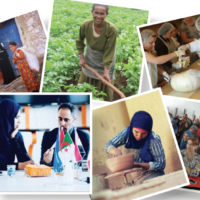 Press review (Scoop.it)
Press review (Scoop.it) Master programmesThe CIHEAM Montpellier stands for both personalised accompaniment and international openness.
Master programmesThe CIHEAM Montpellier stands for both personalised accompaniment and international openness.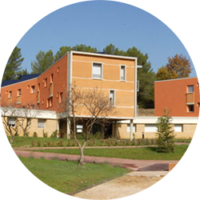 Campus & student lifeSince 1962, almost 95% of our foreign students have been granted accommodation on site.
Campus & student lifeSince 1962, almost 95% of our foreign students have been granted accommodation on site.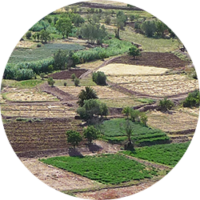 Doctoral platformShaping the scientists of tomorrow through research training… A natural commitment of the CIHEAM Montpellier
Doctoral platformShaping the scientists of tomorrow through research training… A natural commitment of the CIHEAM Montpellier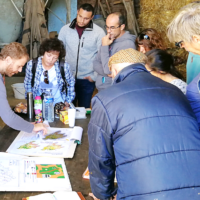 ProjectsOur research and cooperation projects are tools for inclusive development, they take into account the populations and rural and coastal territories of the Mediterranean.
ProjectsOur research and cooperation projects are tools for inclusive development, they take into account the populations and rural and coastal territories of the Mediterranean.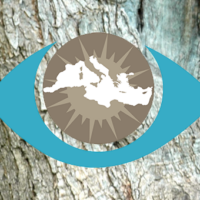 Mediterranean online catalogueA unique Documentation Center on the Mediterranean,
invested in sharing knowledge.
Mediterranean online catalogueA unique Documentation Center on the Mediterranean,
invested in sharing knowledge. Scientific productionThe scientific production of the CIHEAM Montpellier is the fruit of collaborations by our lecturer-researchers, associated experts, students and research partners.
Scientific productionThe scientific production of the CIHEAM Montpellier is the fruit of collaborations by our lecturer-researchers, associated experts, students and research partners. Becoming partnersCreating partnerships is part of the genetic make-up of the CIHEAM Montpellier... Join one of its projects or study programmes, support its actions.
Becoming partnersCreating partnerships is part of the genetic make-up of the CIHEAM Montpellier... Join one of its projects or study programmes, support its actions.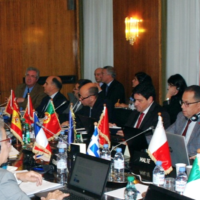 Ministerial meetingsThrough the Ministerial, CIHEAM contributes to the construction of a dialogue between the Mediterranean countries around questions relating to agriculture and the rural world.
Ministerial meetingsThrough the Ministerial, CIHEAM contributes to the construction of a dialogue between the Mediterranean countries around questions relating to agriculture and the rural world.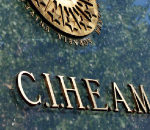
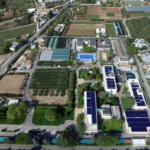
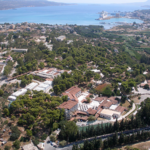
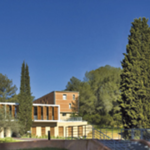
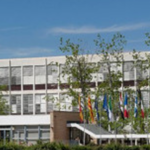
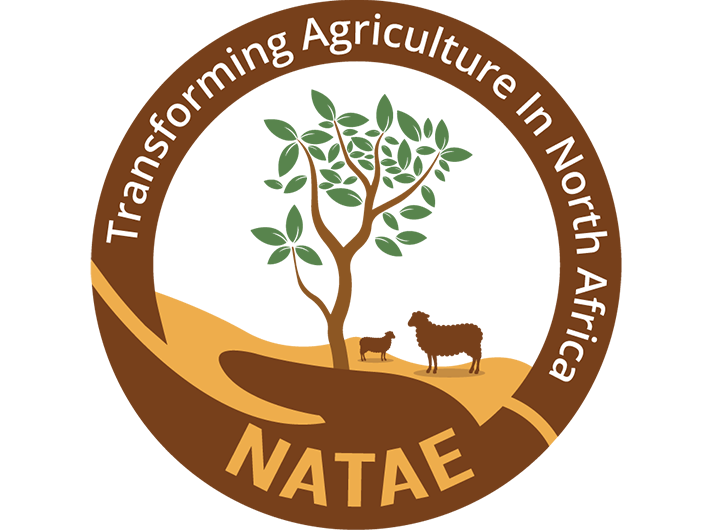
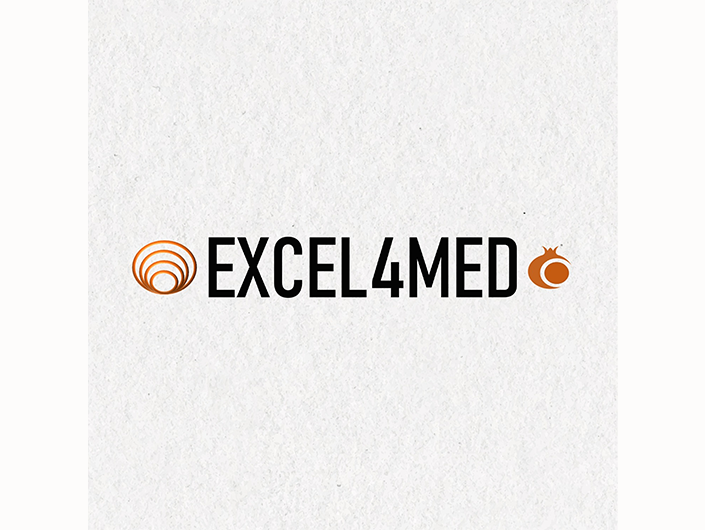

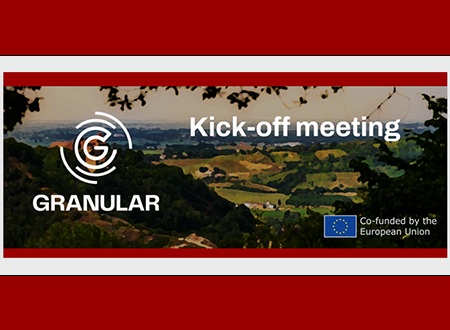
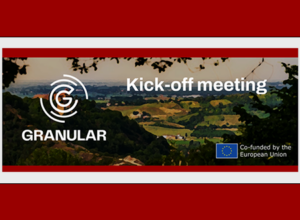
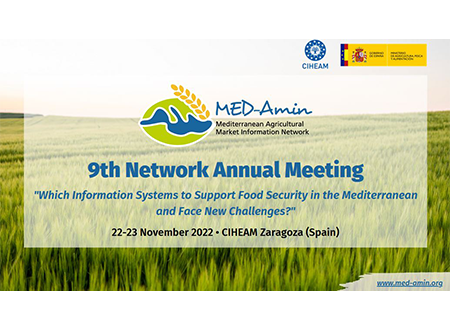
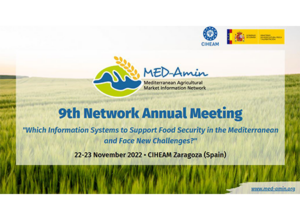 Cereal Markets and Food Security in the Mediterranean region: Seeking Durable Solutions through Cooperation and Continuous Dialogue
Cereal Markets and Food Security in the Mediterranean region: Seeking Durable Solutions through Cooperation and Continuous Dialogue